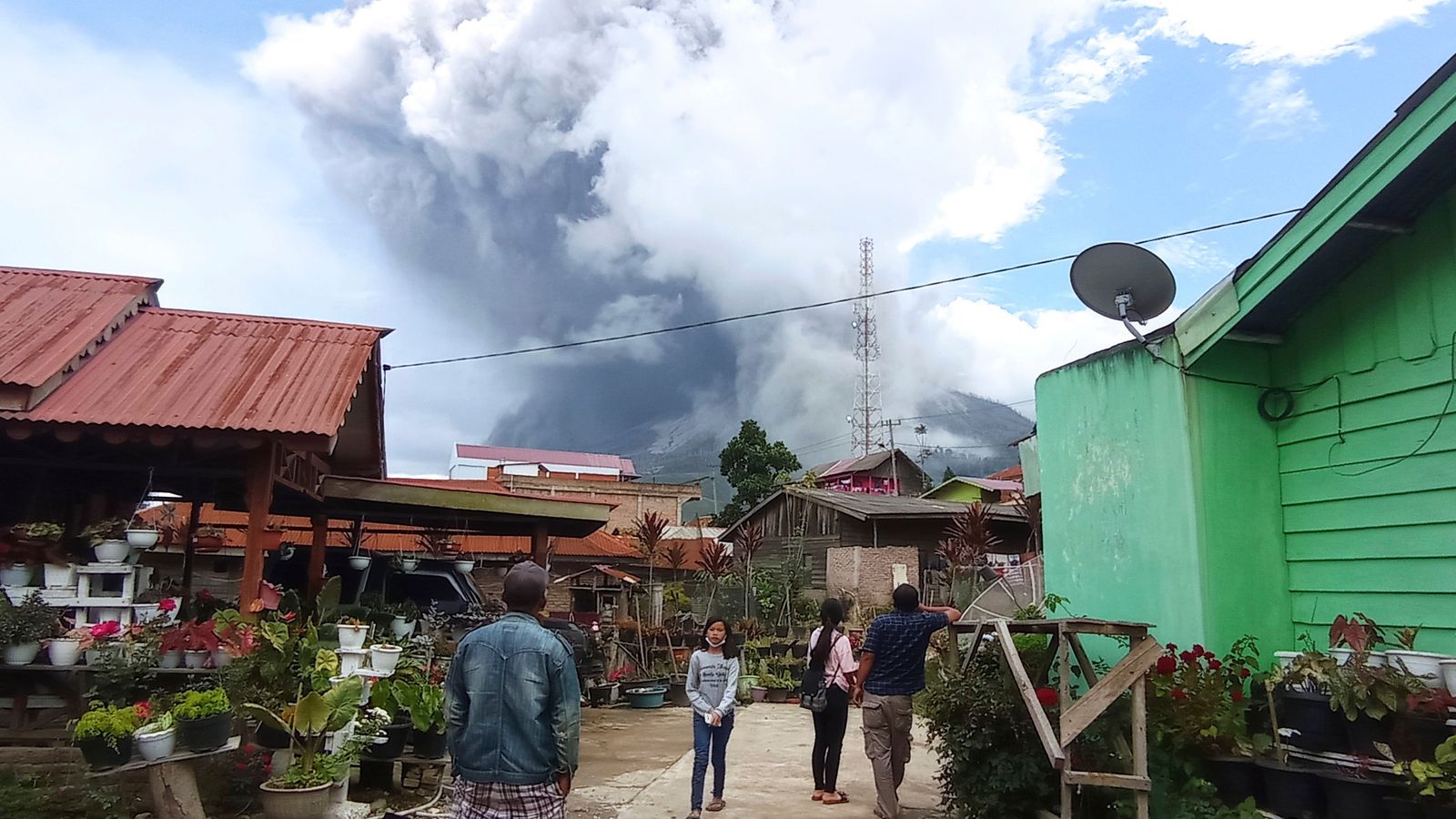Indonesia’s Mount Sinabung has erupted, sending a thick column of ash 4,500m into the air.
The eruption lasted for more than 12 minutes, a local geological agency said.
Villages near the volcano in North Sumatra province had already been relocated following previous eruptions, and there were no casualties, said Armen Putra, an official at the Sinabung monitoring post.
Indonesia’s Centre for Volcanology and Geological Hazard Mitigation said: “The eruption column is thick grey, 4,500m high above the peak and inclined to the east and south.”
“Hot clouds” have reaches as far as 1,000m south-east of the peak, it added.
An image shared by the agency showed billowing, dark smoke coming from the crater.
The volcano alert remains at level three, the second-highest level, where it has been since May 2019.
Mount Sinabung was dormant for 400 years, before erupting in 2010 and killing two people.
It erupted again in 2013 and has remained highly active ever since.
Sixteen people were killed in 2014, while another seven died in an eruption in 2016.
Subscribe to ClimateCast on Spotify, Apple Podcasts, or Spreaker.
The last eruption was in early May when ash fell on nearby villages.
Villagers have been advised to stay 5km (3.1 miles) from the crater’s mouth.
More than 30,000 people have been forced to leave their homes around the mountain in the past few years.
It is one of more than 120 active volcanoes in Indonesia, with the country sitting on the Pacific “Ring of Fire” – a group of volcanoes and fault lines around the ocean’s basin prone to seismic activity.






















